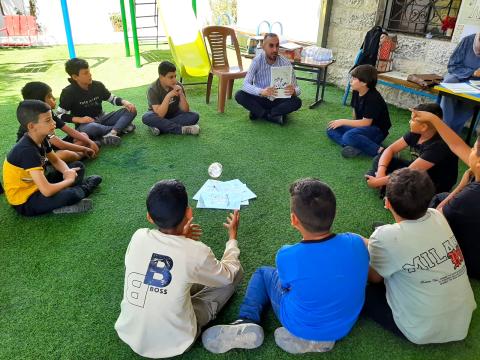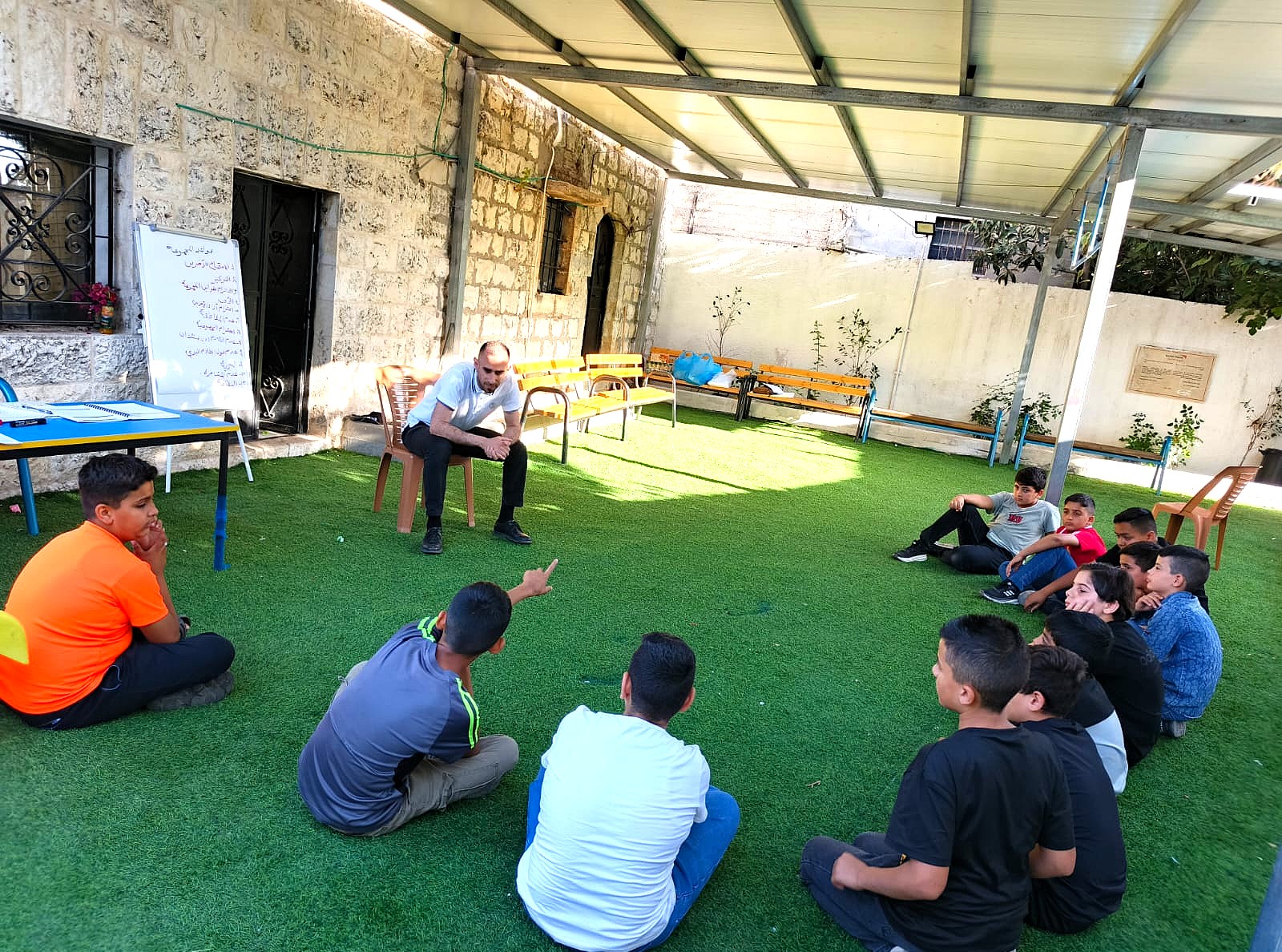A Safe Space to Heal for West Bank Youth

In the West Bank, children and adolescents grow up under constant psychological pressure. Many carry invisible wounds—stress, anxiety, and trauma—that, if left unaddressed, can leave deep scars well into adulthood. Teenagers are especially at risk, often suffering in silence.
To respond to these urgent needs, the Early Adolescent Skills for Emotions (EASE) programme has been introduced, as a part of the Enhanced Access to Mental Health and Psychosocial Support Services (MHPSS) for Vulnerable Communities project. This initiative equips adolescents and their caregivers with tools to build resilience, cope with distress, and strengthen family and community well-being.
Funded by the German Federal Ministry for Economic Cooperation and Development (BMZ), the programme is implemented in partnership with Juzoor for Health & Social Development,
Developed by the World Health Organization (WHO), EASE is a structured psychological intervention for young people aged 10–15 who experience depression, anxiety, and stress. The programme includes seven group sessions for adolescents and three sessions for caregivers, focusing on four core strategies: identifying feelings, managing stress, activating positive behaviours, and solving problems.
A Turning Point for Amal* and Sarah*
Among the many children who joined the programme were Amal* and Sarah*, both 13 years old. At first, nothing seemed unusual—their initial assessments showed no history of suicide attempts. But by the third session, something changed. For the first time, they felt safe enough to reveal the truth: they had attempted to end their lives three times. No one knew. Not their parents. Not their teachers. They had carried this secret alone. While EASE does not specifically work with adolescents experiencing suicidal ideation, the skills they had gained to identify and express their emotions through this intervention enabled Amal and Sarah to share their darkest thoughts.
The volunteer listening to them understood the gravity of their words. Instead of reacting with alarm, she offered patience, compassion, and trust. She checked in on the girls every day, creating a safe space where they could share openly and feel seen. Gradually, she reached out to their aunt and connected them with specialised services—without breaking the fragile trust she had built.
Slowly, Amal and Sarah began to heal. Their thoughts of suicide faded. They began to see the volunteer not only as a helper, but as a lifeline. Months later, the change was clear: they became top students in their classes. Their teachers noticed. Their community noticed. Even mothers began speaking about the EASE programme with admiration, recognising how deeply it was touching children’s lives by offering them a safe space to release their pain.
Thanks to EASE, the girls are now able to understand what makes them feel sad, happy, anxious or angry, and they are learning to manage their stress and solve their day-to-day problems more effectively.

EASE: More Than a Programme
The EASE programme is more than a curriculum. It is a lifeline. It is safety. It is hope. Looking ahead, the programme will expand to 34 villages across the West Bank, reaching over 1,000 adolescents and more than 1,000 caregivers with skills to manage emotions and support one another. Beyond EASE, since October 2023, World Vision has provided mental health and psychosocial support to over 52,000 people, and trained 340 teachers, youth facilitators, and health workers to continue delivering vital care and referrals. Because every child deserves not just to survive—but to heal, to dream, and to live with hope.
* Names have been changed to protect the identities of the children.